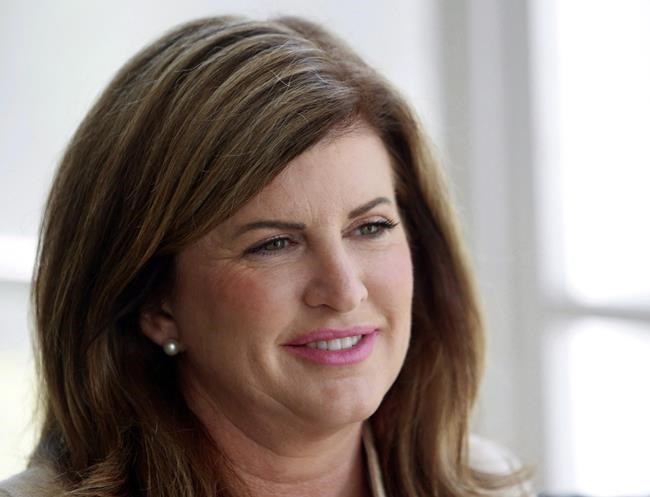It is difficult to spend time on Parliament Hill or in Alberta’s capital these days without picking up a lot of hopeful speculation about Rona Ambrose’s return to public life.
Whether she wants it or not, the Conservatives’ former interim leader — who left politics after the party picked a permanent successor to Stephen Harper two years ago — has become a big piece in the post-election puzzles of both the Liberals and the Conservatives.
Some senior Liberals believe Ambrose should be Justin Trudeau’s next envoy to Washington, a post that has been vacant since the end of the summer at a delicate time in Canada-U.S. relations. With former foreign minister Chrystia Freeland splitting her time between the federal-provincial scene and Capitol Hill, appointing a permanent ambassador has to be high on the prime minister’s to-do list.
Canada has never sent a female envoy to Washington. Appointing a high-profile woman from Alberta — one with solid links to Premier Jason Kenney to boot — would offer Prairie voters yet another token of the prime minister’s goodwill toward a region that largely shut out his party last month.
There is a history of prime ministers reaching outside their immediate partisan circle to fill such roles. Harper appointed former Manitoba NDP premier Gary Doer to Washington. Brian Mulroney dispatched former Ontario NDP leader Stephen Lewis to the United Nations.
As part of the prime minister’s advisory council at the time of the NAFTA renegotiation, Ambrose worked with Trudeau’s team. She is familiar with the file and with many of the players, both in the Trump administration and the PMO.
More recently, some Liberal strategists have found a less high-minded reason to see Ambrose as a great fit for Washington: It would take her out of the mix to replace Andrew Scheer.
That’s something many senior Conservatives who have other ambitions for Ambrose want to avoid. For even as Scheer is getting organized to lead the official Opposition in the House of Commons, minds are increasingly turning to his succession.
Like most of his moves since his election defeat, Scheer’s decision on Thursday to hand the role of deputy leader to Leona Alleslev — an MP who sat on the Liberal side of the House for more time than she served as a Conservative — is more likely to weaken his leadership than to shore it up.
The feeling within (and outside) Conservative ranks is that the odds are getting longer by the day that Scheer will garner enough support to secure a confidence vote in April, or even last long enough to have his leadership reviewed at the party’s convention. But while it is not hard to come up with reasons why the current leader is not the person to move the party forward, finding a successor who will not make things worse is a more complicated matter.
The travails of the NDP after its members fired Thomas Mulcair have illustrated the perils of disposing of a leader without having a Plan B in mind, if not yet in place.
Given the potentially short life of a hung Parliament, the House of Commons is no place for a leader on training wheels.
At the same time, there is not a lot of appetite in the Conservatives’ Prairie heartland for handing the leadership to former blue-ribbon members of the defunct federal Progressive Conservative party.
Names like former New Brunswick premier Bernard Lord, ex-Tory leader Peter MacKay or Ontario Tory minister Caroline Mulroney may stir the hearts of nostalgic Red Tories east of Manitoba, but they inspire more trepidation than excitement in Western Canada circles.
More than 10 years after the warring factions within the conservative movement reconciled, it would still not necessarily take much to again polarize the movement along the Reform/Progressive Conservative divide.
From the perspective of those who are parsing the field for someone to stand in Scheer’s place and bring a still-united party to the next federal campaign, few names tick as many boxes as Ambrose’s.
Those boxes include the attributes that would make her an attractive Liberal choice for Washington and more — including a strong personal relationship with Harper, a decade of ministerial experience and a demonstrated capacity to act as an effective leader of the official Opposition.
It is not clear that she wants back in the game. People who know her believe she would not be comfortable in a role as central to Trudeau’s government and its fortunes as the post of Washington envoy.
But Ambrose has clearly not lost her political killer instinct.
Just last week, as the storm over Scheer’s inability to clearly embrace the equality rights of members of the LGBTQ community was picking up steam, she noted in a tweet how proud she was to have been the first — and only — Conservative leader to have participated in a Pride parade.
Chantal Hébert is a columnist with the Toronto Star.



